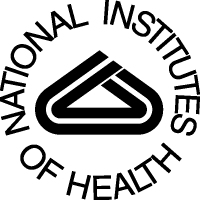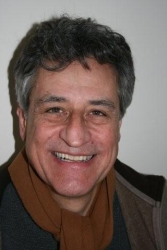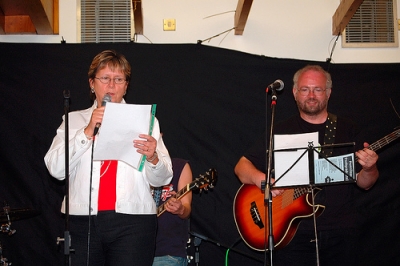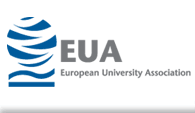Monday, February 9. 2009
SUMMARY: The publisher lobby is trying to undo one of the most positive things Congress has done for science: the NIH Public Access Act, which requires NIH-funded research to be made freely accessible to the public that funded it. Tendentiously misnamed the "Fair Copyright in Research Works Act" the Conyers Bill proposes to "protect" publicly funded research in exactly the same way it protects proprietary Disney cartoons or How-To bestsellers, sold for author royalty income.
It is time for OA advocates and the general public (US and worldwide, because US OA policy has vast global implications) to make their voices heard in favor of the NIH Public Access Policy and against the Conyers Bill's Caricature of Copyright. Please consult the Alliance for Taxpayer Access on how you can help and also express your support for mandating more OA rather than less, to President Obama.
This is also a good time to shore up the NIH Mandate with a small change that will not only increase its reach and make it a far better model for emulation worldwide, but strengthen it against attempts like the Conyers Bill to undermine it: Specify that the research is to be deposited in the fundee's own Institutional Repository. (From there it can be automatically harvested to central repositories like PubMed Central.) The majority of journals already formally endorse OA self-archiving by authors, but most endorse it only in the author's own Institutional Repository (IR) rather than a Central (3rd-party) Repository (CR). Immune to the rival-publisher/free-rider objection, IR deposit is also distributed across all the universities in the world: This small change would also spread the adoption of institutional mandates to NIH's fundees' institutions, extending OA to all institutional research output, funded and unfunded, thus ushering in universal OA at long last.
 The publisher anti-Open-Access lobby is trying to use a time when the economy is down and the head of NIH is out to slip through a Bill that would undo one of the most positive things Congress has done for science: the NIH Public Access Act, which requires NIH-funded research to be made freely accessible to the public that paid for it.
The Conyers Bill is now trying to overturn the Public Access Act on the basis of copyright double-talk that would be ludicrous if it were not so ominous:
The published reports of publicly funded research findings are given away by their researcher-authors free for all in order to maximize their usage and impact. The Conyers Bill proposes to "protect" their work in exactly the same way it protects proprietary Disney cartoons or How-To bestsellers, produced and sold by their authors to maximize their royalty income: The tendentiously misnamed " Fair Copyright in Research Works Act" would rescind NIH's requirement that the results of the research it funds with taxpayer money should be deposited, free for all, on the Web.
The Conyers Bill's copyright arguments -- almost transparently contrived and arbitrary -- have been decisively refuted point for point by Law Professor Michael Carroll and other experts, just as all the other far-fetched, self-serving arguments marshalled by the publisher anti-OA lobby have (despite the hiring of " pit-bull" Eric Dezenhall as public-relations consultant) been repeatedly rebutted each time they were unleashed.
It is time not only for OA advocates, but the general public --  both US and worldwide (because US OA policy has vast global implications) -- to make their voices heard in favor of the NIH Public Access Policy and against the Conyers Bill's Caricature of Copyright.The Alliance for Taxpayer Access is hard at work to save the NIH Mandate; please consult them on how you can help. You can also express your support for mandating more OA rather than less, to President Obama. both US and worldwide (because US OA policy has vast global implications) -- to make their voices heard in favor of the NIH Public Access Policy and against the Conyers Bill's Caricature of Copyright.The Alliance for Taxpayer Access is hard at work to save the NIH Mandate; please consult them on how you can help. You can also express your support for mandating more OA rather than less, to President Obama.
 This would also be an opportune time to shore up the NIH Mandate itself with a small but important change in implementational detail that will not only increase its reach and make it a far better model for emulation worldwide, but it will also strengthen it against mischievous attempts like the Conyers Bill to undermine it:
(1) Open Access is Open Access regardless of where on the Web a paper is freely accessible.
(2) Currently, the NIH mandate specifically stipulates deposit in a Central (3rd-party) Repository (CR), PubMed Central.
(3) The majority of journals already formally endorse OA self-archiving by authors, but most endorse it only in the author's own Institutional Repository (IR) rather than a Central (3rd-party) Repository (CR). (This is because they fear that endorsing deposit in 3rd party CRs would open the door to free-riding on their content by rival publishers.)
(4) Apart from being immune to the rival-publisher/free-rider objection, IR deposit is also distributed across all the universities and research institutions in the world: That makes it a much more diffuse, hence difficult target for the publisher anti-OA publisher lobby than PubMed Central, NIH or Congress.
(5) IRs also make it possible to deposit papers as "Closed Access" rather than Open Access during any publisher embargo period. The Closed-Access paper's metadata (authors, title, journal, date, abstract, etc.) are freely accessible and searchable webwide, and link to an  IR Button that allows individual users to email the author an automatic request for an individual copy for research use with just one click, which the author can in turn fulfill with just one click, almost instantaneously. Over 60% of journals already endorse immediate OA for IR deposits. The Button provides "Almost OA" for the rest, to tide over researcher needs during any embargo. IR Button that allows individual users to email the author an automatic request for an individual copy for research use with just one click, which the author can in turn fulfill with just one click, almost instantaneously. Over 60% of journals already endorse immediate OA for IR deposits. The Button provides "Almost OA" for the rest, to tide over researcher needs during any embargo.
(6) Hence if the NIH deposit mandate specifically stipulated deposit in the author's IR, rather than deposit in PubMed Central, it could harvest the deposit's metadata to PubMed Central, harvest the full-text after the allowable embargo, and moot most of the copyright issues, while indirectly providing "Almost OA" even during the embargo (via the Request-a-Copy Buttons of the global network of IRs distributed across the planet).
(7) This small change in implementational detail in NIH's funder mandate would also motivate and reinforce the adoption of institutional mandates at all NIH's fundees' institutions, which would in turn help reinforce and protect the NIH mandate (from Conyers-like attacks) as well as extending it to all institutional research output, funded and unfunded.
(8) Stipulating IR deposit rather than CR deposit will also make the NIH funder mandate a model that can be emulated worldwide, globalizing the adoption of both funder and institutional mandates and helping to usher in universal OA at long last.
Stevan Harnad
American Scientist Open Access Forum
Tuesday, January 27. 2009
 The following is re-posted from Bloomsbury Academic.
The Basement Interviews by Richard Poynder Common Knowledge, Common Good:
Architects and Advocates of the Free Knowledge Movement
"A few years ago I could see an increasing number of "free" and "open" movements beginning to develop. And while they all had different aims, they appeared to represent a larger and more generalised development than their movement-specific objectives might suggest.
"Indeed, I felt that they looked set to exemplify the old adage that the sum of some phenomena is always greater than the constituent parts. But if that was right, I wondered, what was the sum in this case?
"I was also intrigued as to why they were emerging now. For while it was apparent that these movements — including Open Source and Free software, Creative Commons, Free Culture, Open Access, Open Content, Public Knowledge, Open Data, Open Source Politics, Open Source Biology, and Open Source Journalism etc. — all owed a great debt to the development of the Internet, it was not clear to me that the network was the only driver.
"The genesis of the Free Software Movement, for instance, could be said to lie in the specific culture of the Artificial Intelligence Lab at MIT in the 1970s, rather than the Internet. And at that time software programs were still generally written as part of large-scale centralised projects, and distributed on floppy disks or tapes. So I suspected that the Internet was not a sufficient explanation on its own.
"Additionally, I was curious about the individuals who had founded these movements: What had motivated them? Why did they feel so passionate about the cause that they had adopted? What did they think the various movements had in common (if anything) with one another? What was the big picture?
"All in all, it seemed to me to be good material for a book; a book that I envisaged would consist primarily of a series of Q&A interviews with the key architects and advocates of what I had come to call the Free Knowledge movement — people like John Perry Barlow, John Gilmore, Michael Hart, Richard Stallman, Eric Raymond, Linus Torvalds, Jay Rosen, Lawrence Lessig, Joe Trippi, Harold Varmus, Vitek Tracz, Stevan Harnad, Paul Ginsparg, Cory Doctorow, Yochai Benkler, Richard Jefferson, Michel Bauwens etc.
"I eventually started publishing the interviews on my blog, as The Basement Interviews. And much to my pleasure I began to receive positive feedback almost immediately. I also felt the big picture was beginning to emerge, although the project remains ongoing for now.
"Many of those who have contacted me have urged me to seek out a publisher. A publisher, they insist, would be able to market the interviews in ways that — whatever the advantages of self-publishing on the Web — I was not able to do. Besides, they added, it would be great to have access to a print copy of the collected interviews.
"Others were less sure. As one reader who emailed me put it, "Now the interviews are in the blogosphere they will surely find their own audience."
"What do you think? I'd be interested to hear. I'd also be interested for suggestions as to who is missing from my list of interviewees. Who else, that is, do you think of as a key architect or advocate for the Free Knowledge movement that has not been mentioned here? I can be contacted at richard.poynder@btinternet.com
"Further details about The Basement Interviews can be accessed here
"The interviews thus far can be read by clicking on the links below:" 1. Michael Hart, the founder of Project Gutenberg
2. Richard Stallman, the founder of the Free Software movement
3. Eric Raymond, a co-founder of the Open Source Initiative
4. Jay Rosen, a leading proponent of Open Source journalism
5. Lawrence Lessig, the founder of the Free Culture movement
6. Cory Doctorow, a cyber activist and specialist in copyright and digital rights management
7. Vitek Tracz, the first Open Access publisher
8. Harold Varmus, a Nobel laureate, a co-founder of the Public Library of Science, a former director of the US National Institutes of Health and now one of the co-chairs of the Council of Advisors on Science and Technology in the Obama administration.
9. Richard Jefferson, the leading advocate for the Biological Open Source Movement
10. Stevan Harnad, the self-styled archivangelist
11. Peter Suber, the de facto leader of the Open Access movement
12. Michel Bauwens, the creator of the Foundation for P2P Alternatives
Richard Poynder writes about information technology, telecommunications, and intellectual property. In particular, he specialises in online services; electronic information systems; the Internet; Open Access; e-Science and e-Research; cyberinfrastructure; digital rights management; Creative Commons; Open Source Software; Free Software; copyright; patents, and patent information.
Richard Poynder has contributed to a wide range of specialist, national and international publications, and edited and co-authored two books: Hidden Value and Caught in a Web, Intellectual Property in Cyberspace. He has also contributed to radio programmes.
Saturday, January 17. 2009
A letter from the Electronic Publishing Trust for Development to recent research appointees to the Obama administration: Professor John Holdren,
Professor Harold Varmus,
Professor Jane Lubchenko,
Professor Stevan Chu.
January 1st 2009
Dear Professors,
It is with great pleasure that we note your recent appointments in the new US administration. The appointment of yourselves, together with other prestigious scientists to advise on energy, the environment, health and conservation issues, so critical to the planet, is extremely encouraging to scientists everywhere. We write as Trustees of the Electronic Publishing Trust for Development1, working with developing country scientists and publishers to promote equality of access to essential research publications, and wish you well in your endeavours.
The resolution, through science, of urgent global problems is a priority for the safety and economic progress of all nations, yet cannot be achieved by any country in isolation. We write to you, therefore, to urge you to ensure that access to publicly funded research is free to all potential users, particularly to those in low economy regions where the costs of commercial journals are prohibitive, yet where the problems are most severely felt. Without an international perspective on disease control, climate change and other global problems, there will always be limited success, since scientific knowledge in the developing world is a crucial element to the implementation of appropriate and sustainable solutions.
The international movement towards the twin approaches to achieving free and open access to research findings2 – open access institutional repositories (current total 1239)3 holding deposits of published, peer-reviewed articles, plus open access peer-reviewed journals (current total 3812)4 – is already well established. These collectively provide open access to several million refereed published research articles. Additionally, there are now 31 open access mandates from universities and research institutions requiring the deposit of their own research article output, whether institutionally or externally funded, in their own institutional repositories, as well as 30 open access mandates from major research funding organisations5 requiring the deposit of articles arising from their financial support.
As measurement tools become established, the usage of such material is now seen to be spectacularly high, indicating the very real need for access to research previously locked in high-priced journals, accessible only to those able to afford them.
It remains of great importance, now that the groundwork is laid, that these developments are supported and extended to all research in every discipline. Already the NIH Open Access mandate exists, together with other mandates in the USA, in Europe (including the European Research Council and 6 of the 7 UK Research Councils), Asia, Australia, Canada and elsewhere, many requiring deposit of research publications in low cost and interoperable Institutional Repositories. Barack Obama’s CTO forum requesting proposals for top priorities for the administration ranks access to publicly funded research information as the 12th most important, as of today. It is clear from this widespread activity that there is universal support by the global research community for the free exchange of essential scientific information and data, accelerating progress and enabling advantage to be taken of powerful new web technology.
We write in the hope that you will be able to use your good offices to ensure the adoption of Open Access policies by all federal agencies, thus encouraging further equivalent policy adoptions throughout the world. Environmental protection, the cure and treatment of malaria, HIV/AIDS, the containment of emerging new infectious diseases, the conservation of biodiversity and energy are all urgent issues particularly affecting the low economy regions. They cannot be solved without international scientific cooperation, depending as it must on free and open access to research publications.
We wish you much success in your new appointment and urge that the wider needs of the developing world will be high on your list of priorities. Open Access to research findings by mandated deposit in Institutional Repositories is a very low cost and achievable aim with disproportionately large benefits.
With our good wishes for 2009 and your future work,
Sincerely yours,
Barbara Kirsop, Secretary/Trustee,
On behalf of Trustees of the Electronic Publishing Trust for Development EPT - Electronic Publishing Trust for Development and EPT Blog
- BOAI – Budapest Open Access Initiative, 2002
- ROAR – Registry of Open Access Repositories
- DOAJ – Directory of Open Access Journals
- ROARmap – Registry of Open Access mandates
- OSTI E-print Network, - links to servers, sites and documents of interest to the Department of Energy’s research
Friday, January 9. 2009
 Doctoral thesis highly commended Doctoral thesis highly commended
"The Emerald Group Publishing Limited have informed the Department [of Information Science (DIS) at Loughborough University] that Dr. Michael Norris has been named as a Highly Commended Award winner of the 2008 Emerald/EFMD Outstanding Doctoral Research Award in the Information Science category for his doctoral thesis ‘The citation advantage of open access articles’. These prestigious awards have now been running for four years and attract submissions of an exceptionally high quality from across the globe in all subject areas.
"Michael was awarded his Ph.D. in the autumn of 2008 and is continuing to work on a research project in DIS. Charles Oppenheim, Head of Department commented: 'This recognition of Dr. Norris’ research is richly deserved. His outstanding research explored the topical and contentious issue of whether Open Access journal articles receive more citations than toll access journals, and if so, why. His work demonstrated that the reasons for the increase of citations are complex and cannot be explained away in a simplistic fashion, as some have tried to do'.”
Published version: Norris, M, Oppenheim C, Rowland F. (2008) The citation advantage of open-access articles. Journal of the American Society for Information Science and Technology 59(12) 1963-72.
{One does, however, wonder why -- although Loughborough University's Institutional Repository has not yet adopted a self-archiving mandate -- neither this thesis nor this paper numbers among the 47 items deposited by (or for) any of its co-authors (none of them more recent than 2007)...}
Stevan Harnad
American Scientist Open Access Forum
Wednesday, December 31. 2008
 An invaluable friend to Open Access, University of Southampton's Professor Wendy Hall, as Head of the School of Electronics and Computer Science from 2002 to 2007, not only presided over the adoption and implementation of the world's first Green OA Self-Archiving Mandate, but she quietly went on to help get Green ( ID/OA) Mandates adopted at the European level, as a founding member of the Scientific Council of the European Research Council as well as President of the British Computer Society (BCS) and member of the Prime Minister’s Council for Science and Technology. It is no small thanks to Wendy's support that the UK in particular and Europe in general are leading the world in its inexorable progress toward the optimal and inevitable outcome for scientific and scholarly research, at long last.
And this is but one part of what Wendy has done for computer science, and science in general. (Dame Wendy was, among other things, the inventor of Microcosm, a harbinger of the Semantic Web, whose inventor -- an obscure courtly figure by the name of Sir Tim Berners-Lee -- has since likewise become one of Wendy's Southampton departmental colleagues.)
Let us all celebrate her latest honour.
Friday, September 19. 2008
 Those who said Green OA Self-Archiving could not be mandated in Germany please take notice. Fraunhofer-Gesellschaft has been the first to do the "impossible" (from ROARMAP, via Informationsplattform Open Access and Peter Suber's Open Access News):  Fraunhofer-Gesellschaft (GERMANY* institutional-mandate) Fraunhofer-Gesellschaft (GERMANY* institutional-mandate)
Institution's/Department's OA Eprint Archives
Institution's/Department's OA Self-Archiving Policy
The policy follows the Berlin Declaration definition of OA.
FG "makes every effort" to provide OA to the full-text articles by its employees.
 When FG employees publish in TA journals, copies "shall" be deposited in the FG repository, Fraunhofer ePrints. If the publisher insists, FG will respect an embargo of up to one year. When FG employees publish in TA journals, copies "shall" be deposited in the FG repository, Fraunhofer ePrints. If the publisher insists, FG will respect an embargo of up to one year.
When FG employees publish articles, they are "expressly required to demand" the "right to further use of their own works."
FG "wholeheartedly supports" publishing in peer-reviewed OA journals.
FG managers are "urged to take a proactive stance" to help FG researchers make use of green and gold OA.
FG "is committed to providing the necessary financial, organization and non-material support" to implement its policy.
Thursday, September 18. 2008
(By way of relief from the antics to lower the ante in the US Congress.)

"Australia ups the ante on global access to research"
Zoë Corbyn
Times Higher Education Supplement
18 September 2008
Stay tuned also for the Open Access and Research Conference
Brisbane, Australia
24-25 September 2008.
The Conference is hosted by Open Access to Knowledge (OAK) Law Project an Australian Department of Education, Employment and Workplace Relations ( DEEWR) funded project, the Queensland University of Technology (QUT) Division of Technology, Information and Learning Support and the QUT Faculty of Law.
Friday, June 20. 2008
  Another superb OA Interview by Richard Poynder, this time of Leslie Chan of the University of Toronto, one of the original co-drafters and co-signatories of the Budapest OA Initiative, a formidable and relentless (yet gentle and patient) force in propelling the world -- and especially the developing world -- toward OA. Leslie will be hosting ELPUB 08 in Toronto next week where he will also be launching the OSI-supported OA sourcebook OASIS (Open Access Scholarly Information Sourcebook). 
Friday, April 11. 2008
 From: European University Association (EUA) News:
Universities need to do more to develop institutional policies and strategies that increase access to their peer-reviewed research results to the widest range of users, to maximise the impact and visibility of university research. From: European University Association (EUA) News:
Universities need to do more to develop institutional policies and strategies that increase access to their peer-reviewed research results to the widest range of users, to maximise the impact and visibility of university research.
This is one of the key r ecommendations published by EUA’s Working Group on Open Access, which aim to raise awareness of the importance of the open access issue within the university community, both in terms of its impact upon the research process but also its financial implications for university libraries.
EUA is recommending that universities across Europe set up an ‘institutional repository’ (or take part in a shared repository) as a key first step to achieving this goal. These repositories should be established and managed according to current best practices and policies developed by universities should ensure that researchers deposit their publications in the repository on acceptance of publication. Embargoes should only apply to the date of open access provision and not the date of deposit.
University policies should also take better account of copyright and the institutional intellectual property rights (IPR) management.
The recommendations were published following a meeting of the EUA Council, which took place before the opening of the EUA Spring Conference at the University of Barcelona. The working group’s recommendations are based on the core premises: the university’s role and responsibility as guardian of research knowledge as a “public good” and that the results of publicly funded research should be publicly available as soon as possible; and that quality assurance peer review processes are pre-conditions for scholarly publishing.
Please click here to read the full recommendations.
Tuesday, January 15. 2008
 From Peter Suber's Open Access News: From Peter Suber's Open Access News:The new January issue of the DESIDOC Journal of Library and Information Technology is devoted to open access (guest-edited by Usha Mujoo Munshi). Here are the articles: - Usha Mujoo Munshi, Guest Editorial
- Subbiah Arunachalam, Open Access to Scientific Knowledge
- Alma Swan, Open Access for Indian Scholarship
- Peter Suber, Open Access to Electronic Theses and Dissertations
- Stevan Harnad and Alma Swan, India, Open Access, the Law of Karma and the Golden Rule
- Barbara Kirsop, Open Access to Publicly Funded Research Information: the race is on
- Peter Suber, Open Access and Quality
- N.V. Sathyanarayana, Open Access and Open J-Gate
- G. Lalitha Kumari, Global Access to Indian Research: Indian STM Journals Online
- Krishan Lal, Open Access: Major Issues and Global Initiatives
PS: DESIDOC is India's Defence Scientific Information and Documentation Centre.
|
 The publisher anti-Open-Access lobby is trying to use a time when the economy is down and the
The publisher anti-Open-Access lobby is trying to use a time when the economy is down and the 
 This would also be an opportune time to shore up the NIH Mandate itself with a small but important change in implementational detail that will not only increase its reach and make it a far better model for emulation worldwide, but it will also strengthen it against mischievous attempts like the
This would also be an opportune time to shore up the NIH Mandate itself with a small but important change in implementational detail that will not only increase its reach and make it a far better model for emulation worldwide, but it will also strengthen it against mischievous attempts like the  The following is re-posted from
The following is re-posted from 

 Those who said Green OA Self-Archiving could not be mandated in Germany please take notice. Fraunhofer-Gesellschaft has been the first to do the "impossible" (from
Those who said Green OA Self-Archiving could not be mandated in Germany please take notice. Fraunhofer-Gesellschaft has been the first to do the "impossible" (from 


 From:
From:  From Peter Suber's
From Peter Suber's 

